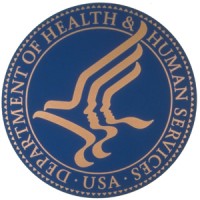 Washington, D.C. – As many people make warm-weather plans, the U.S. Department of Health and Human Services encourages Americans to schedule another important appointment—a blood donation.
Washington, D.C. – As many people make warm-weather plans, the U.S. Department of Health and Human Services encourages Americans to schedule another important appointment—a blood donation.
The United States is experiencing a severe blood supply shortage and summer is a time when supplies tend to drop even further. But the demand always continues, so it’s important to give often.
Every two seconds someone in the U.S. needs blood or blood products. Blood donations help cancer patients, accident and burn victims, transplant recipients, individuals suffering from rare and chronic conditions and others survive.
Generally, donors must be aged 17 or older, or 16 with parental consent, weigh at least 110 pounds, be in good health, feel well, and not be taking antibiotics.
Common questions include:
What happens during the donation?
Donating blood is safe and simple. Whether you choose to give through a mobile blood drive or at a donation center, the process is similar.
• Registration: You sign in, show your ID, and read some information.
• Health History and Health Check: You fill out a questionnaire about your health, travel, and lifestyle to confirm your eligibility. Someone will check your temperature, blood pressure, iron levels, and pulse.
• The Donation: While you’re comfortably seated, your arm will be cleaned and sterilized. After blood is drawn from your arm, you get a bandage.
• Refreshment and Recovery: You can then enjoy a light snack and drink while waiting 10 to 15 minutes before you leave and resume your daily activities.
Depending on the type of donation, the appointment can take anywhere from 1 to 2.5 hours.
Are certain blood types needed?
Blood banks need a diverse supply of blood, and the need for each blood type changes daily. Plus, blood types vary and can be more or less common in certain racial and ethnic groups. When a wide range of people donates, more lives are saved.
Can I give blood if I had COVID-19?
It depends. If you tested positive for COVID-19 but did not have symptoms, you’re eligible to donate blood 14 days after the positive test result.
If you tested positive and had symptoms, then you must wait to donate until you are symptom-free for at least 14 days.
If you were hospitalized, you may have received a treatment that requires you to defer your donation. For example, if you received a blood transfusion or convalescent plasma, you cannot donate for one year.
Can I give blood if I got a COVID-19 vaccine?
Yes. If you had an inactivated or RNA-based COVID-19 vaccine from AstraZeneca, Janssen/Johnson & Johnson, Moderna, Novavax, or Pfizer, you can donate blood if you are feeling well.
If you got a live attenuated COVID-19 vaccine or do not know what type of COVID-19 vaccine you received, you must wait two weeks before giving blood.
At your appointment, you’ll be asked for the manufacturer’s name, so bring your vaccination card with you.
Learn More
For further facts, visit at: fteleaders.org/ftebooks.



